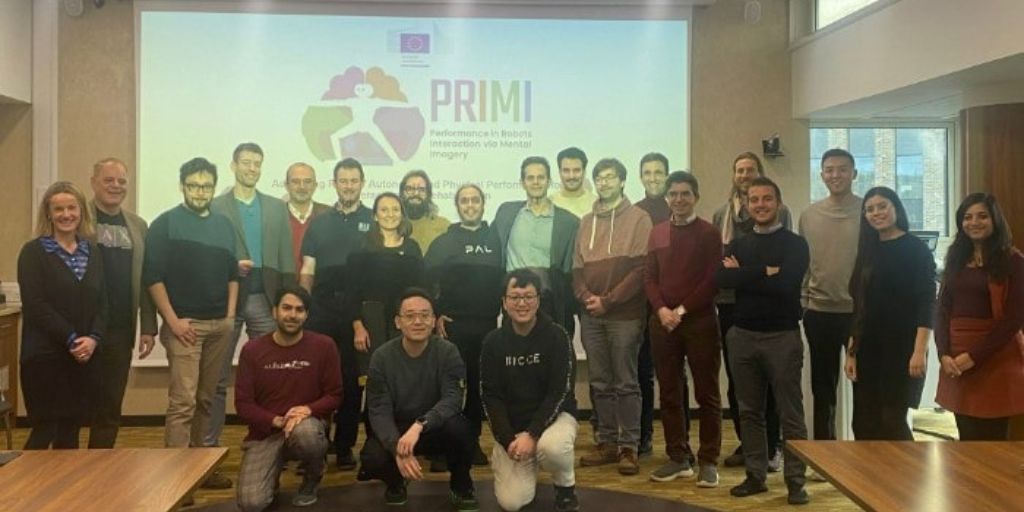
Researchers at Sheffield Hallam University, alongside partners across Europe, have been awarded €7.3 million to lead a project to develop a new intuitive robot that uses technology inspired by the human brain to improve social interaction and rehabilitation of stroke survivors.
The project, funded through Horizon Europe, brings together scientists from five universities across Europe, a research institute and private sector businesses with expertise in neurophysiology, psychology, machine intelligence, cognitive mechatronics, neuromorphic engineering, and humanoid robotics.
The team aims to create socially interactive autonomous robots with human-like physical performance.
Performance in Robots Interaction via Mental Imagery (PRIMI) will harness energy efficient brain simulation technology to translate imagination and intention into fluid robotic motions in real time. Simply by looking at human movements, robots will soon be able to learn and carry out complex sequences of actions.
Over the next four years, Sheffield Hallam researchers will work in close collaboration with clinical partners at the University’s Advanced Wellbeing Research Centre (AWRC) to co-design an innovative robotic-led rehabilitation of stroke survivors, which will be demonstrated in pilot clinical trials utilizing prototypes of the new neuromorphic humanoid robots.
Successful results from PRIMI at Sheffield Hallam could transform assisted living and manufacturing through safely deployable, intuitively controlled robots.
Dr Alessandro Di Nuovo, Professor of Machine Intelligence at Sheffield Hallam University and Scientific Coordinator of the PRIMI project, said: “I am thrilled to announce the start of the EU-funded PRIMI project – a pioneering initiative with the goal of revolutionizing the fields of robotics and artificial intelligence. It is a great pleasure to collaborate with world-leading academics alongside innovative companies specializing in cutting-edge neuromorphic hardware and service robotics.
“Together, we are tackling the challenges to bring in a new era of physically and socially interactive autonomous robots. I look forward to the exciting journey ahead as we work towards this groundbreaking advancement.”
Successful results from PRIMI at Sheffield Hallam could transform assisted living and manufacturing through safely deployable, intuitively controlled robots. The human-like motor ability of the robots could open up new healthcare applications, such as Action Observation Therapy for physical rehabilitation of stroke survivors, and in industry 4.0 factories, whereby it can support higher productivity via close human-robot collaboration.
Dr Chiara Bartolozzi, Senior Researcher Tenured – Principal Investigator of the Italian Institute of Technology, said: “This project gives us the opportunity to create innovative and sustainable technology that seamlessly bridges neuroscience with robotics to enable artificial intelligence for the wellbeing of fragile individuals”.
The European Commission selected Sheffield Hallam’s proposal amid intense competition, underscoring the institution’s rising reputation as a leader in robotics research.
Sheffield Hallam University is joined by Technische Universitaet Dresden, Germany; Università degli Studi di Ferrara, Italy; The University of Manchester, United Kingdom, Fondazione Istituto Italiano di Tecnologia, Italy; Universitaet Bielefeld, Germany; Pal Robotics Sl, Spain and Spinncloud Systems Gmbh, Germany.
This project has been funded by the European Commission Horizon Europe programme and the Innovate UK Horizon Europe Guarantee Fund.












